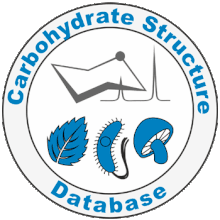
About UniCarbKB
The rapidly expanding glycomics field (structure and function of sugars) is being increasingly recognized as an important component of life science research, for application in diagnosis of disease, preventive medicines (vaccines) and therapeutic drugs. In contrast to the genomics and proteomics fields, and despite several international initiatives, glycomics still lacks maintained, accessible, curated, integrated and comprehensive data collections that summarize the structure, characteristics, biological origin and potential function of carbohydrates.
UniCarbKB is an initiative that aims to promote the creation of an online information storage and search platform for glycomics and glycobiology research. The knowledgebase will offer a freely accessible and information rich resource supported by querying interfaces, annotation technologies and the adoption of common standards to integrate structural, experimental and functional data. Through cross-referencing existing databases and information resources, the UniCarbKB framework endeavours to support the growth of glycobioinformatics and the dissemination of knowledge through the provision of an open and unified portal to encourage the sharing of data.
The initiative aims to make the technology available to all glycomics researchers and other ‘omics’ disciplines to explore and integrate cross-disciplinary boundaries to gain new insights. Australia has a unique opportunity to become a global focal point for building and enabling a capability area in glycomics that integrates and leverages the technology and data produced by previous international and Australian infrastructure initiatives.
Acknowledgements
The UniCarbKB team acknowledge the work and efforts of EUROCarbDB and GlycoSuiteDB including associated projects MonosaccharideDB, GlycoWorkBench, GlycanBuilder and GlycoBase. These actvities have enabled us to develop and provide the community with a growing resource for glycomics and glycoproteomic research. Furthermore, we welcome new collaborations with members from the JCCGDB, Rings and BCSDB databases.

